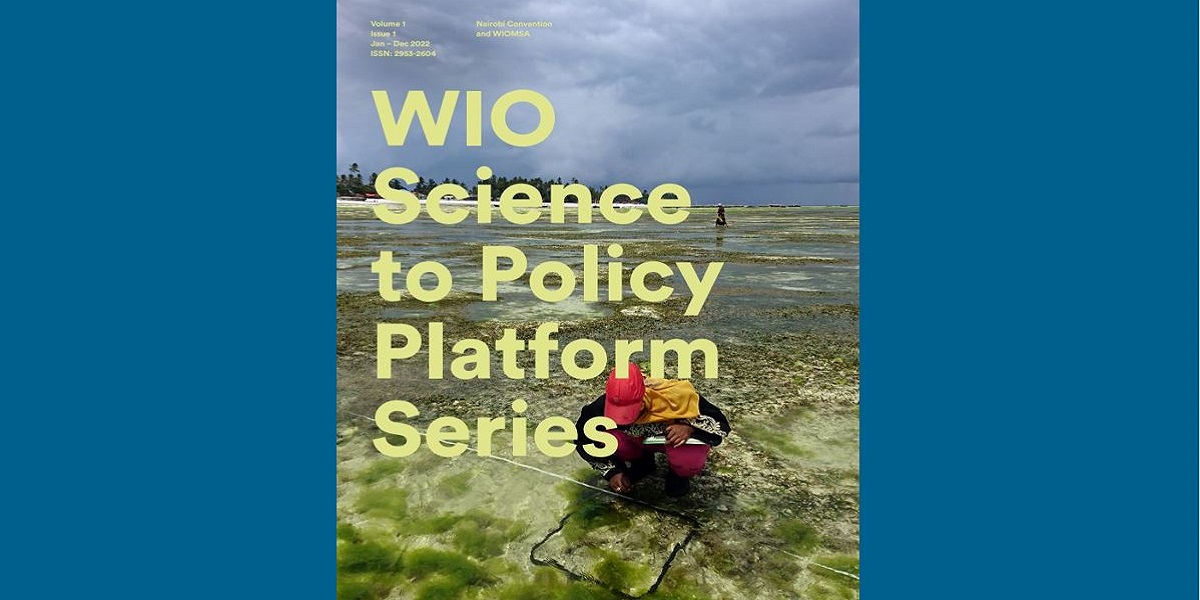
Co-design paper published in the first issue of the WIO science to policy platform series
An insightful discussion paper “Co-design as the basis for collaboration and science to policy uptake in the Western Indian Ocean Region” was recently published in the first volume of the Western Indian Ocean Science to Policy Platform series “Transitioning to a Sustainable Blue Economy in the WIO Region: Addressing the challenges and harnessing opportunities”. The paper (page 63) provides an overview of the concept of co-design and gives recommendations on how to implement the approach and create the political will, that is needed to include sciences into politics. It indicates that the work across scientific disciplines, regions and societal groups is increasing and requires new methods and concepts regarding communication, institutional arrangements and funding opportunities. The importance of co-design is especially highlighted in the context of the Ocean Decade.
The paper was published in the pioneering volume of the WIO science to policy platform series. Volume 1, Issue 1 of the series has been produced by the Nairobi Convention and WIOMSA and features articles that reflect the ongoing initiatives in the region to bring science and policy together. The papers in this issue acknowledge the challenges to achieving sustainable marine environments in the region and the policy and implementation gaps. Conversely, they also describe successful policy interventions and highlight emerging issues of relevance to the WIO region.
Another paper to be highlighted within the series is “Strengthening regional regulatory frameworks and national capacity for handling marine biodiversity data in the Western Indian Ocean”, which can be found on page 51 of the issue. The paper addresses the need for readily-available and accurate biodiversity data to make informed decisions concerning marine ecosystems’ protection and sustainable use in the context of abundant marine biodiversity in the WIO region. It features that all sectors and processes, such as policymakers, scientists, local communities, small-scale fisheries, tourism, or the maritime sector, must be addressed, to provide data for evidence-based decision-making. Based on the outcomes of several expert workshops, qualitative interviews, and the extensive experience of involved partners in East Africa, it is proposed to align biodiversity and taxonomic data collection, reporting, and sharing through common frameworks. Those frameworks should be co-designed to reflect the information needs of a broad spectrum of stakeholders and to be inclusive of under-represented status groups.
Read and download the First Issue of the WIO science to policy platform series here.